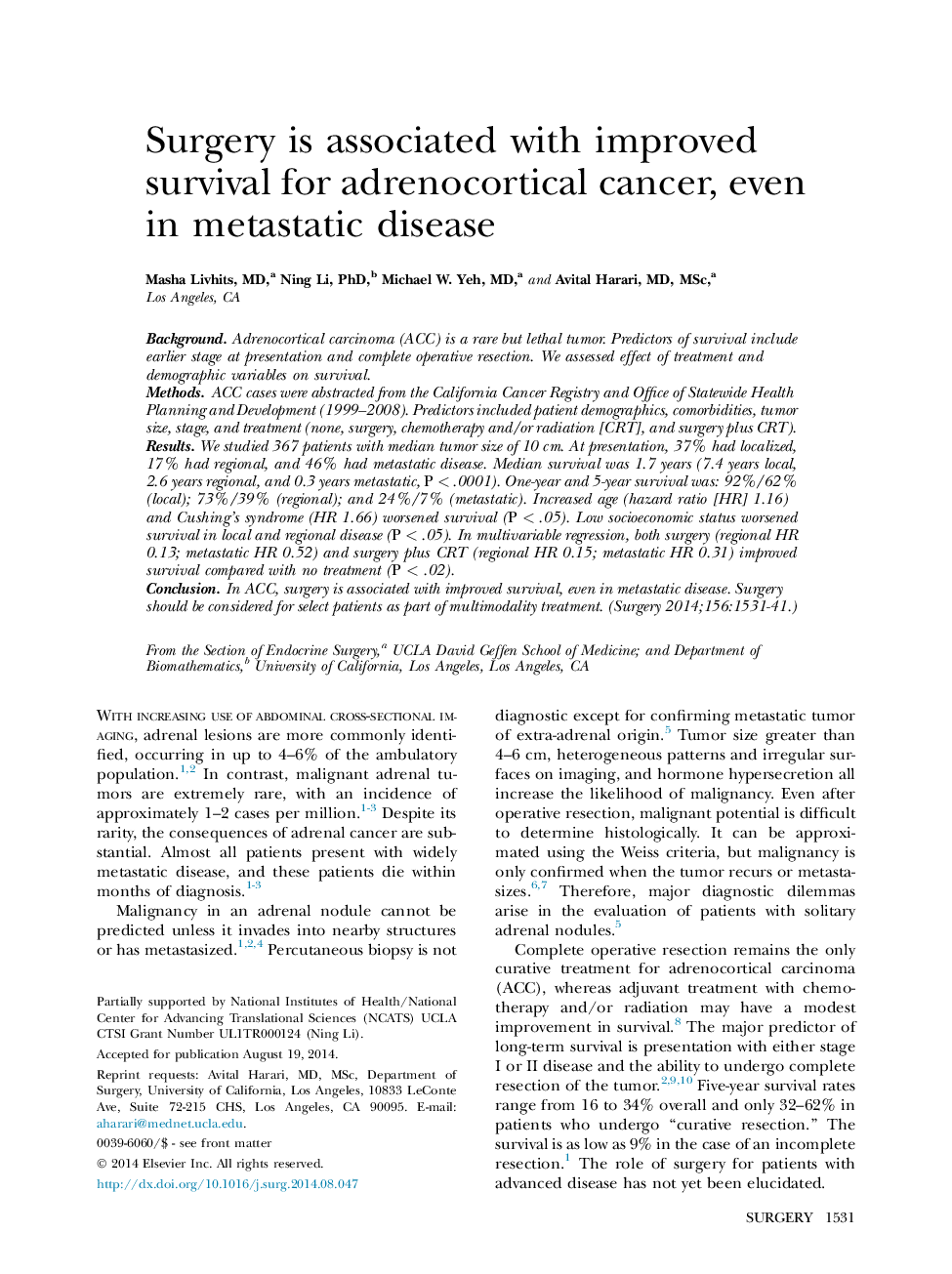| Article ID | Journal | Published Year | Pages | File Type |
|---|---|---|---|---|
| 4307457 | Surgery | 2014 | 11 Pages |
BackgroundAdrenocortical carcinoma (ACC) is a rare but lethal tumor. Predictors of survival include earlier stage at presentation and complete operative resection. We assessed effect of treatment and demographic variables on survival.MethodsACC cases were abstracted from the California Cancer Registry and Office of Statewide Health Planning and Development (1999–2008). Predictors included patient demographics, comorbidities, tumor size, stage, and treatment (none, surgery, chemotherapy and/or radiation [CRT], and surgery plus CRT).ResultsWe studied 367 patients with median tumor size of 10 cm. At presentation, 37% had localized, 17% had regional, and 46% had metastatic disease. Median survival was 1.7 years (7.4 years local, 2.6 years regional, and 0.3 years metastatic, P < .0001). One-year and 5-year survival was: 92%/62% (local); 73%/39% (regional); and 24%/7% (metastatic). Increased age (hazard ratio [HR] 1.16) and Cushing's syndrome (HR 1.66) worsened survival (P < .05). Low socioeconomic status worsened survival in local and regional disease (P < .05). In multivariable regression, both surgery (regional HR 0.13; metastatic HR 0.52) and surgery plus CRT (regional HR 0.15; metastatic HR 0.31) improved survival compared with no treatment (P < .02).ConclusionIn ACC, surgery is associated with improved survival, even in metastatic disease. Surgery should be considered for select patients as part of multimodality treatment.
